Directors
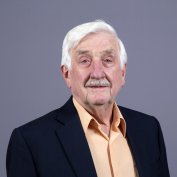
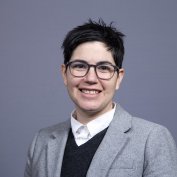
Advisory Committee
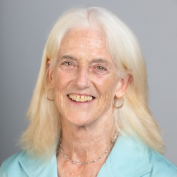
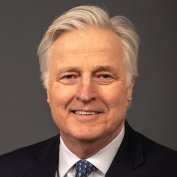
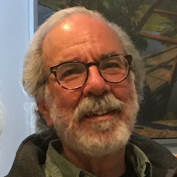
Senior Institute Members
UAlbany Faculty

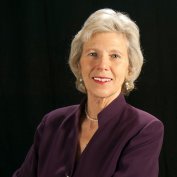




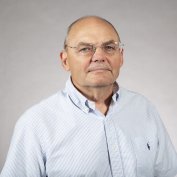
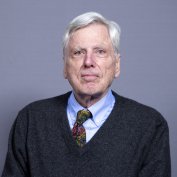




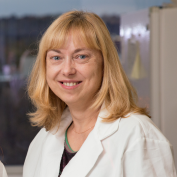
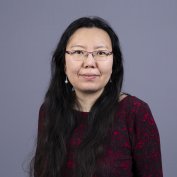
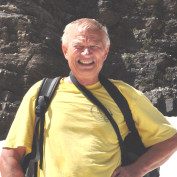
Affiliated Faculty
Kathleen Arcaro
Environmental Sciences Program, University of Massachusetts
Dr. Arcaro’s research program is focused on understanding how environmental exposures and lifestyle choices can affect the development of breast cancer. Additionally, for the last decade Dr. Arcaro has been studying breast milk as a means of understanding how environmental exposures and lifestyle choices can affect the development of breast cancer. She has published numerous scientific articles, and reviews of her research have appeared in the Wall Street Journal, Time Magazine, Los Angeles Times, USA Today, and Business Week among others. Dr. Arcaro’s research on the epigenetics of cells in breast milk is funded by the Congressionally Directed Medical Research Program, the Avon Foundation for Women, and the National Institutes of Health.
Sheila Bushkin-Bedient
New York Alliance Against Chronic Diseases; Medical Society of the State of New York
After many years in general surgery and plastic and reconstructive surgery, in addition to emergency medicine, Dr. Buskin-Bedient became involved in public health and preventive medicine. As a member of the Medical Society of the State of New York (MSSNY) since 1998, she has served on many committees concerned with public health education and advocacy issues. Her specific areas of interest involve chronic diseases, aging, environmental health and continuing medical education (CME).
Judith Enck
Beyond Plastics Program, Bennington College
Judith Enck served as Region 2 administrator for the Environmental Protection Agency from 2009 to 2017. Prior to that she served as Deputy Secretary for the Environment for the Governor of New York State, and an Environmental Advisor to the New York State Attorney General. A graduate of St. Rose, she has served as Executive Director of Environmental Advocates and a staff person for the New York Public Interest Research Group.
Jeffrey L Goldhagen
University of Florida College of Medicine
Dr. Goldhagen is a Professor of Pediatrics at the University of Florida College of Medicine who has long worked through the International Society for Social Pediatrics and Child Health to promote knowledge and education on issues related to children’s health, which is a major goal of the World Health Organization. Dr. Goldhagen will promote these activities through our WHO Collaborating Centre, especially in Latin America but also in other parts of the world.
Laura Jones
Dr. Jones is an experienced data analyst, modeler and biostatistician with a demonstrated history of working as a researcher in higher education. Dr. Jones is skilled in numerical simulation, data analysis for small and large datasets, survey analysis, biostatistical analysis, mathematical modeling of biological and ecological systems, supervised and unsupervised methods in machine learning, and programming in Python, R, MatLab and SQL. Dr. Jones graduated from CalTech with additional courses from Cornell University (Mathematics, Statistics, Computational Ecology) and UAlbany (MS in Statistics, Biostatistics and Mathematics-Data Science).
Lawrence Lessner
Dr. Lessner's specialties are in biostatistics and epidemiology.
Pamela Miller
Alaska Community Action on Toxics
Pamela Miller serves as Executive Director of Alaska Community Action on Toxics, an environmental health research and advocacy organization. With a master’s degree in environmental science and a bachelor’s degree in biology, she has thirty years of experience in research, policy, advocacy, and training programs focused on environmental health, justice, and marine ecology. Since 2005, Miller has served as Principal Investigator for community-based research projects supported by the National Institute of Environmental Health Sciences (NIEHS) with Indigenous communities. Miller is known for her work toward achieving state, national, and international chemicals policy reform to protect environmental and human health in the Arctic. She was selected as a Fellow for the Reach the Decision Makers program from the University of California San Francisco, Reproductive Health and Environment Program (2011) and as a Mentor (2013-2016). In 2012, she received the Meritorious Community Service Award from the Board of Regents of the University of Alaska. Alaska Conservation Foundation awarded Miller the Olaus Murie Award in recognition of her “long-term outstanding professional contributions to the conservation movement in Alaska.” In 2016, she was elected to serve as the co-chair of the International POPs Elimination Network (IPEN), a global network of more than 500 environmental health and justice organizations working for a toxics-free future. She also serves on the board of directors for the Groundswell Fund (2013-present).
Gayle Morse
Psychology, The Sage Colleges' School of Health Sciences
For over a decade, Dr. Morse has conducted research examining the effects of Polychlorinated Biphenyls and other toxic chemicals on Mental Health.
William Pan
Environmental Health, Duke University
Bill Pan is the Elizabeth Brooks Reid and Whitlaw Reid Associate Professor Global Environmental Health at Duke University, and with Prof. Beth Feingold has extensive research in South America. He received his MPH from Emory and his DrPH from the University of North Carolina.
Norman Strominger
Center for Neuropharmacology and Neuroscience, Albany Medical College
Dr. Strominger is a coauthor of Noback’s Human Nervous System, Seventh Edition, 2012. His main interests include neuroanatomical organization of the central nervous system, mechanisms of nausea and vomiting, auditory system and control of movement. Dr. Strominger has an adjunct appointment in UAlbany's College of Integrated Health Sciences in the Department of Biomedical Sciences.
Bayram Yilmaz
Medical Physiology, Yeditepe University
Bayram Yilmaz is a Professor of Medical Physiology at Yeditepe University in Istanbul, Türkiye. He has a Doctor of Veterinary Medicine degree from Firat University (Türkiye) and PhD in Medical Physiology from University of Glasgow (Scotland). He worked as a Research Assistant Professor at the State University of New York at Albany, and Visiting Scientist at the King’s College London and at the University of Oxford. His research interest include neuro-endocrine regulation of energy homeostasis and reproductive hormones in experimental models. He also works on presence of endocrine disrupting chemicals in human (breast milk) and environmental samples using in vitro and in vivo test models. Prof. Dr. Bayram Yilmaz served as Secretary General at Federation of European Physiological Societies (FEPS) between 2014 and 2022. He is the president of Turkish Neuroscience Society and Vice President of Turkish Society of Physiological Sciences. He founded and chaired the Turkish Neuroendocrinology Society between 2008 and 2018. Professor Yılmaz served as founding Secretary General (2016 to 2019) and acting President (2018 to 2019) at the Health Institutes of Türkiye (TÜSEB).
Junior Institute Members
Thoin F. Begum
Center for Asian Health, Lewis Katz School of Medicine, Temple University
Begum’s research focuses on the health effects of environmental chemical exposure in humans. She has published articles on the reproductive outcomes associated with phthalate exposure. Her current research is examining the effects of polychlorinated biphenyls and disability among the Mohawk Nation at Akwesasne.
Delisha Bella
Dr. Bella’s research interest includes health disparities and environmental justice, specifically exposure to environmental toxicants and how they affect human health in minority communities. She is a huge advocate for health and education equity and is passionate on expanding STEM education in minority communities.
Andre Costa
Andre Dias is a Brazilian PhD Fulbright Scholar with research focused on utilizing community engagement to prevent environmental crimes. He holds a Master Degree in Administration with focus on project management, and a graduate degree in Public Security and Human Rights. During his 16 years of experience as a Federal Police Officer in Brazil he has worked with crimes against nature, drug repression and migration, and was also head of the Project Management Office, the Internal Control Office and deputy chief of the Standardization and Normalization Office.
Tamba S. Lebbie
Tamba's research focuses on the effects of environmental pollutants on human health and the environment. Tamba's research interests include health effects of ultrafine particles, how used electrical and electronic equipments or e-waste impact human health, particularly the health of children.
Najm Alsadat Madani
New York State Department of Health
Najm got her bachelor's degree in Industrial engineering (Industrial Safety) and her master's degree in Environmental Management (Health Safety Environment) from Iran. She got her PhD in Environmental Health Sciences of University at Albany. She is interested in researching the adverse effects of environmental contaminants on human health. Her PhD thesis research examines the adverse effects of VOCs on human health.
Azad Mohammed
Dr. Azad’s has a clinical background in Rheumatology. His research interests are in Chemical exposures that affect the neuromuscular and musculoskeletal systems, in addition to the assessment and health hazards related. He has MS and DrPH degrees in Environmental Health from the School of Public Health of the University at Albany. His main research areas include chronic conditions such as Rheumatoid Arthritis and Osteoarthritis and other autoimmune diseases.
Omosehin Moyebi
Dr. Moyebi’s research interests focus on the concentration levels of size-segregated particulate matter (sub-micron, fine, coarse, and total suspended particles) and particulate matter constituents (black carbon, metals, ionic species, and gaseous pollutants) in urban centers of developed and developing countries. Investigating the effects of fine particulate matter on cardiovascular health, and the chemical characterization of particulate matter composition associated with cardiovascular diseases.
Steven Ogden
Steven’s doctoral research is an interdisciplinary collaboration between the sciences and humanities. As such, it is an examination of hybridized “creative-scientific” genres, and the ways in which their “metamorphic” texts afford the reading public a more-meaningful and intimate understanding of current ecological and environmental precarities. Through description and metaphor, technical writing and narrative, cause-and-effect and characterization, Steven’s dissertation project bridges the rationalisms of scientific research/reporting with the semantic innovations of the humanities, reconceptualizing (through new transdisciplinary imaginings) issues of environmental health, such as persistent organic pollutants, endocrine disrupting chemicals, effluence and micro-waste, deforestation, species loss, nuclear waste storage, and global warming. Utilizing creative-scientific authors like Rachel Carson, Theo Colborn, C.D. Wright, Michel Serres, and many others, Steven’s work explores not only the hybrid representations of these global and deep-time disturbances, but provides a necessary story and agency—a subjectivity—to both the human and non-human populations being affected by their “slow violence.”
Sarah Otaru
Sarah Otaru is a researcher with a background in medicine (MBBS) and a Master’s in Public Health (MPH). Her research is centered on the intricate relationships between environmental pollutants and human health, with particular emphasis on the impact of pesticides. In her focused investigations, Sarah examines the associations between pesticide exposure and metabolic syndrome, shedding light on how these chemicals can contribute to endocrine disruption and interfere with the microbiome. Through her studies, she aspires to enhance the understanding of the multifaceted interactions between environmental toxins and physiological processes, and contribute to the development of strategies for health protection and promotion.
Nozomi Sasaki
Nozomi’s research focuses on the effects of environmental exposures to metals and organic compounds on cognitive functions. She conducts data analyses to understand associations of environmental exposures and health outcomes by using the statistical language of R and SAS, and geographic information systems of GIS and QGIS. Her current research assesses cognitive declines with environmental toxic metals and PCBs exposures.
Lijo Varghese
Lijo's doctoral research is examining how 1,4-dioxane behaves in surface water compared to groundwater, in the Twin Lakes Preserve in Wantagh, N.Y. The research filled gaps in knowledge about this carcinogenic chemical and answered questions on the potential of the existing Northrop Grumman Bethpage Groundwater Plume to contaminate surface water features on its path to the Great South Bay. Current water policies pertaining to the use, control, and remediation of 1,4-dioxane were examined, and policy recommendations were made based on new and preexisting data.




